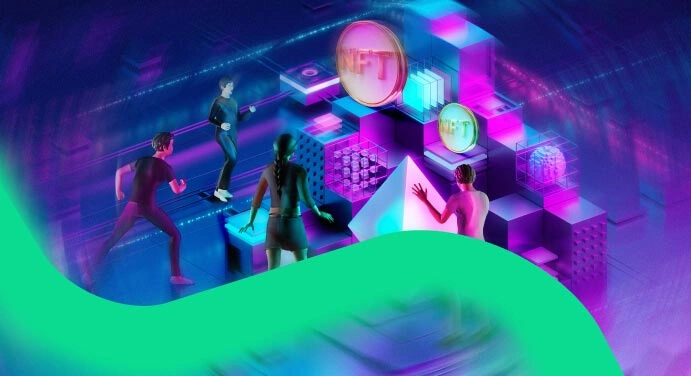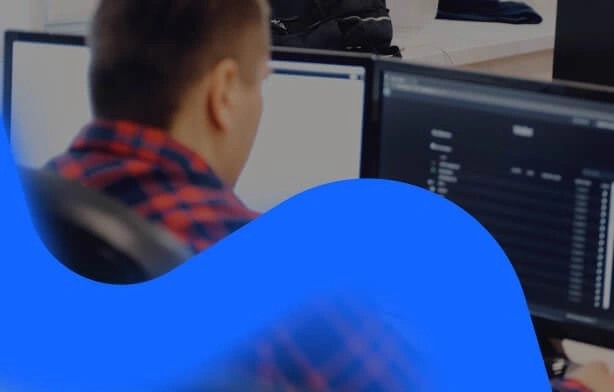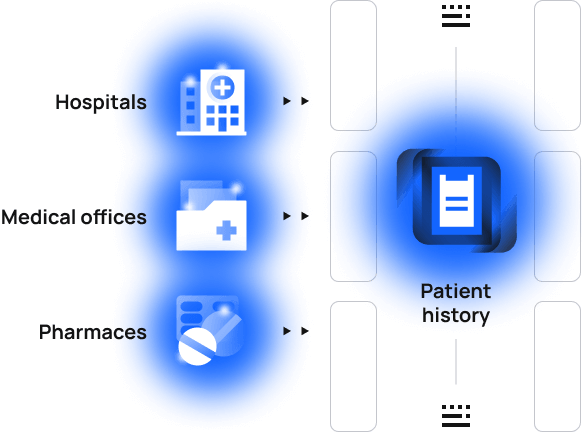Blockchain applications in healthcare
-
Centralized database
-
Detecting counterfeit drugs
-
Cost-effective trials
Use case 1. Centralized database

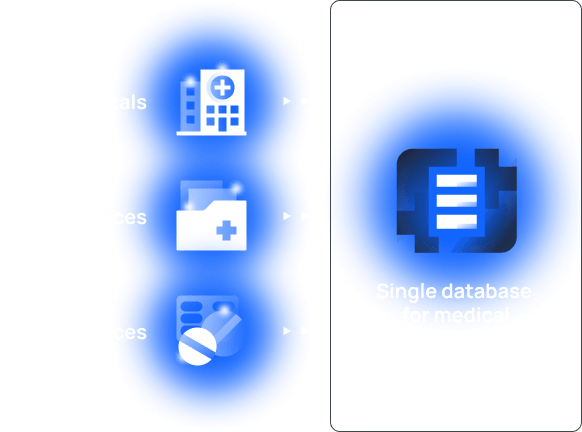
Currently
With patient histories scattered across medical institutions, doctors have to continuously collect data from various care providers, risking to miss something or fail to obtain that at all.
With blockchain
Blockchain establishes a universal database where hospitals, pharmacies, and other healthcare establishments can seamlessly share data, with immediate access for each network member.
Use case 2. Detecting counterfeit drugs

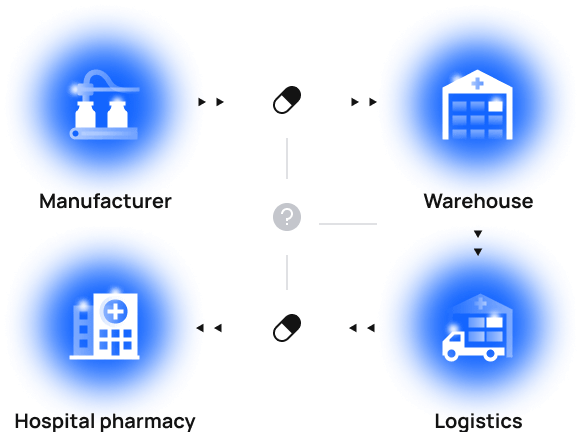
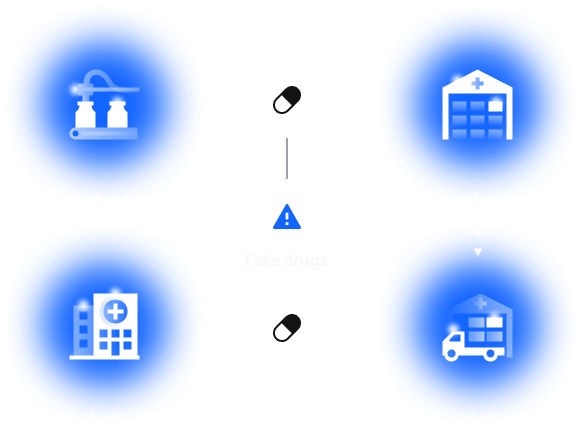
Currently
Insufficient auditability and control within drug supply chains make it difficult to detect counterfeit medications (if any) in logistics, and those might reach drugstore shelves unimpeded.
With blockchain
Get end-to-end transparency across supply chains to promptly detect fakes and weed them out from authenticated drugs.
Use case 3. Cost-effective trials

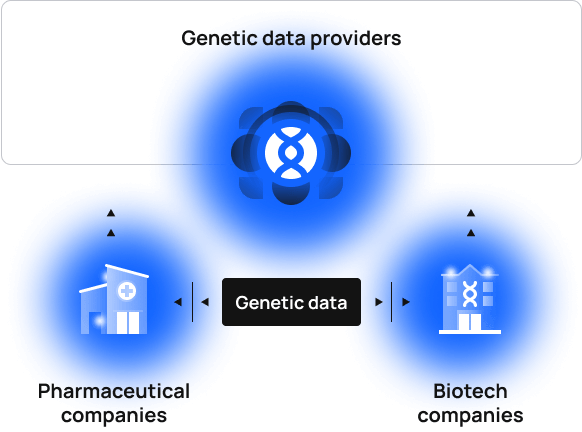
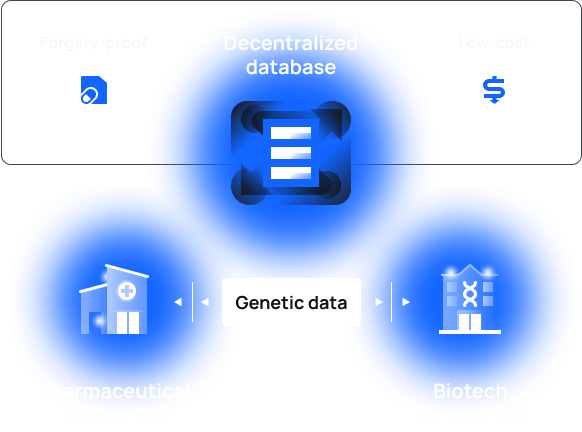
Currently
So far, pharmaceutical and biotech companies have to apply for third-party genetic data providers, which makes trials more costly than they could be.
With blockchain
With a distributed blockchain database for genetic data, healthcare companies can collect the required information for trials intermediary-free, hence less expensive.
